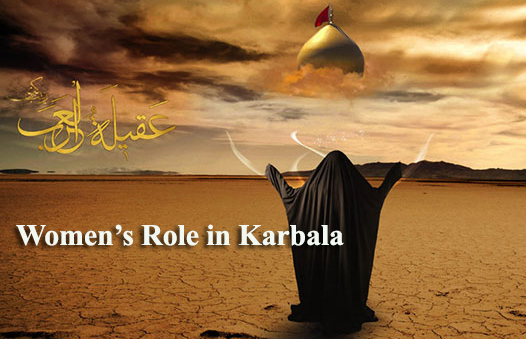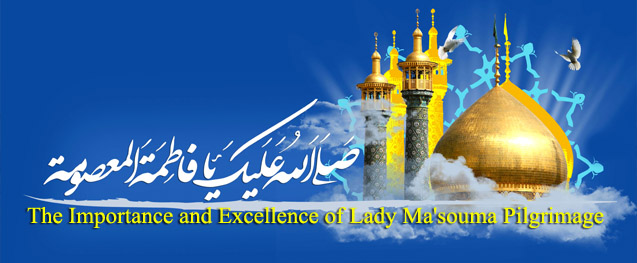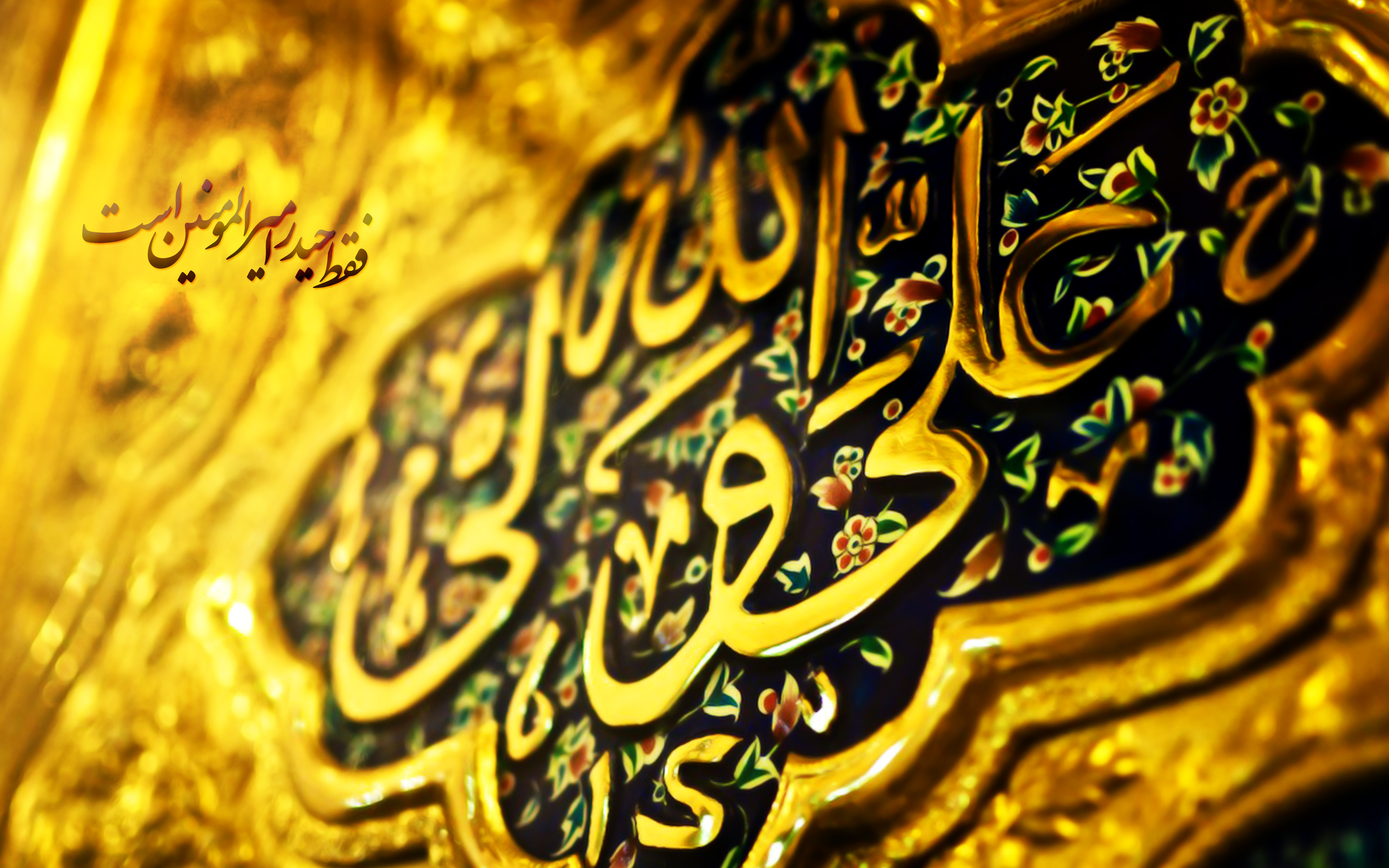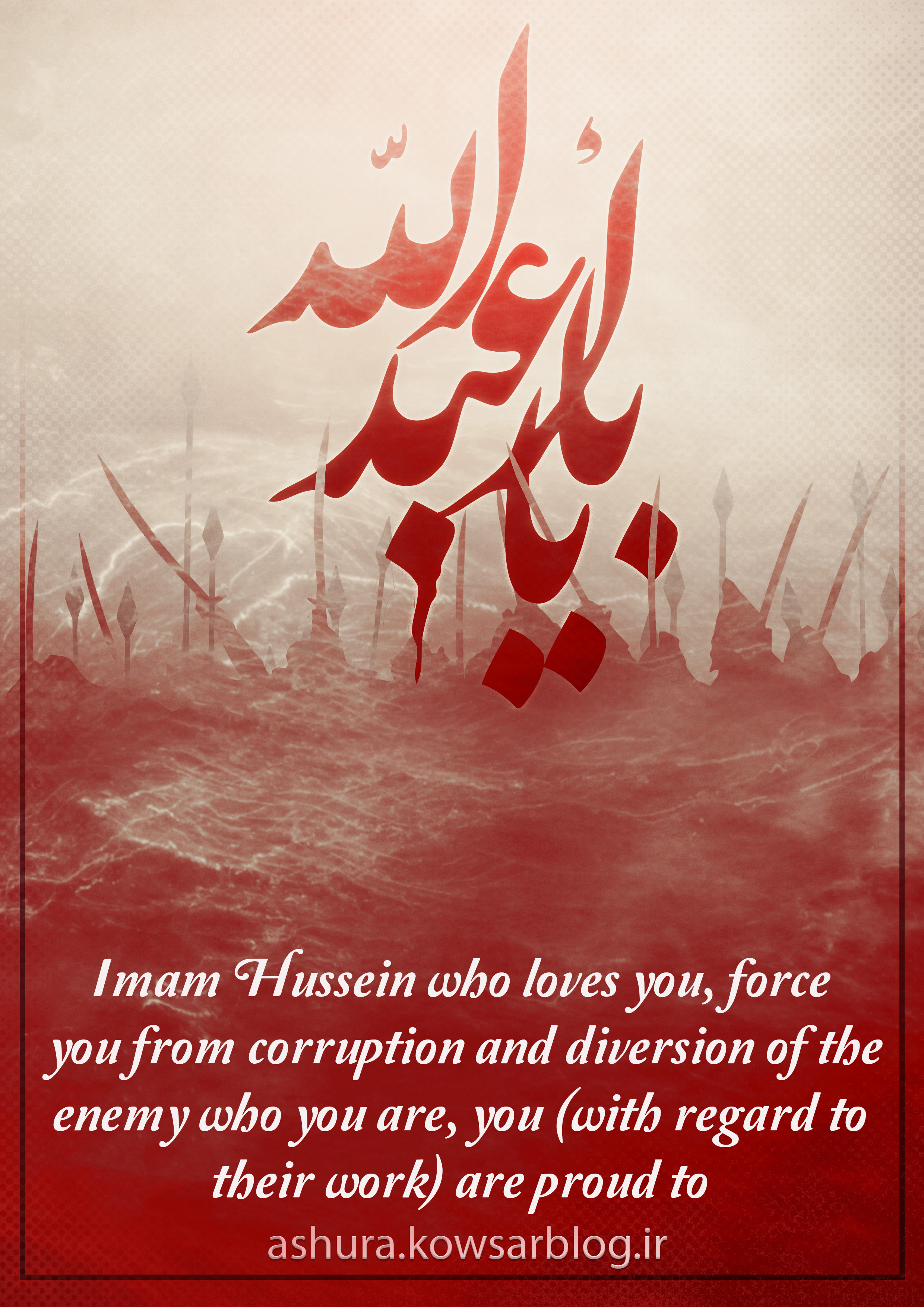The role of Muslim women in Karbala
نوشته شده توسط... 28ام مرداد, 1396
An article by the pure Elweiah , the martyred Bint Alhuda
What a fabulous meeting which gathered us during this days of Muharram with the greatest Islamic disaster, returning its everlasting memories inside us, Muslims!, glorifying its eternity which raising through all ages, and following its heroic, wonderful events to learn from it the highest means of struggles which has been represented with glorious sky lights, generous with spiritual examples, full of all the meanings of good, which were represented on that day of Altaf in Ashura.
That day, which is still and remained as a good lesson in the heart of Muslims, shinning page in Islamic history, an incandescent torch which separating high glories and the right faith, and a clear path towards spiritual immortality and the remains of the immaterial morals.
Reliance on God
نوشته شده توسطرهــا 27ام مرداد, 1396
Trust in Allah means to rely upon Him and to commend all affairs to Him, diverging from anyone or anything else. The source of trust in Allah is power of heart and conviction. Likewise, loss of trust in Allah originates from feebleness of heart and conviction and the influence of apprehensiveness and illusion:
“Allah is Sufficient for the needs of whoever trusts in Him.” (65:3)
“Allah loves those who trust Him.” (3:159)
“(Muḥammad), say, ‘Nothing will happen to us besides what Allah has decreed for us. He is our Guardian. In Allah alone do the believers trust.’” (9:51)
“If Allah is your helper, no one can defeat you. However, if He abandons you, who would help you? The true believers trust in Allah.” (3:160)
Reality of Trust in Allah
Trust in Allah does not mean to neglect beneficial means or methods, to not lift a hand to face events and crises. Having trust in Allah is not mutually exclusive with the reliance on the natural means and outward causes for achieving one’s aims. Allah has decided to make all matters proceed according to their natural causes. Notwithstanding, it is necessary to depend upon and trust in Allah for achieving the purposes.
As he noticed a Bedouin neglecting to even tether his camel, relying on Allah exclusively, the Prophet (P.B.U.H. & H.H.) instructed him: “Tether your camel then trust in Allah exclusively.”
Ranks of Trust in Allah
People vary greatly in terms of how much they trust in Allah. Some are forerunners in this regard: they devote themselves completely to Allah and neglect everything except Him. Those are the prophets (P.B.U.T.), their successors, and the saints.
As an example on the best picture of trust in Allah, it is narrated that when Prophet Abraham (P.B.U.H.) was in his way to the fire, the angel Gabriel met him in the air and asked whether he wanted him to do anything. He answered: “For you, you can do nothing for. I depend on Allah Who is the best Guardian.” Then the angel Michael met him and suggested that he would extinguish that fire since rain and water had been under his disposal. The prophet (P.B.U.H.) also rejected his offer. Then the angel of wind met him and suggested that he would cause that fire to fly away, but the prophet (P.B.U.H.) also rejected the offer. Then the angel Gabriel came to him again and asked him to supplicate to Allah. Abraham (P.B.U.H.) said: “My supplication is worthless because He knows my current state best.”[1]
Virtue and value of pilgrimage to hazrat Masouma
نوشته شده توسط... 27ام مرداد, 1396
The Importance and Excellence of Lady Masouma Pilgrimage
Introduction
Enthusiasm and strong desire for visiting a friend, or the same pilgrimage, is among the most important signs of affection and fondness. Since pilgrimage is an innate and perfectionist affair, the more you grow fond of it, the more eager you are to visit a friend. This fondness of visiting goes one as he/she passes away and thereafter it turns to his/her works specially his/her resting place or shrine. Thus in Islam visiting such places has been seriously taken into consideration. A shining example of that is the manner of the holy prophet (P.B.U.H. & H.F.) who used to visit the resting places of Muslims. Abu Harire says: “The Prophet (P.B.U.H. & H.F.) used to visit his mother’s resting place and wept for her and caused others to weep and said: I have taken permission from Allah for visiting her. Likewise, he visited the resting place of the martyrs of Ohod at the beginning of each year and recited this phrase: Peace be upon you for what you have tolerated, what a great place is the afterlife for you.”
Our infallible Imams (P.B.U.T.) specially Lady Zahra (P.B.U.H.) and their followers were in the tradition of this great manner and afterwards it is carried on by religious authorities until now. Despite the deceitfulness of some people, visiting resting places of Muslims or shrines is not a newly established manner by Shiites. It is nothing but the manner and tradition of the holy Prophet (P.B.U.H. & H.F.).
A Quranic look at the Event of Ghadeer
نوشته شده توسطرهــا 26ام مرداد, 1396
By Ruhullāh Zeyn’alī
Ghadeer Khumm is located between Mecca and Medina indicating one of the most important Islamic events. Here and on the 18th of Dhu al-Hijjah, the Holy Prophet of Islam (Peace be upon Him and His Family), with the order of Allah, announced ‘Alī ībn Abī Tālib as his successor. though Imam ‘Alī (A.S) was already appointed for several times as the successor by the Holy Prophet (PBUH), doubtlessly; the big gathering of Muslims at Qadir Khumm and in the last Hajj pilgrimage of the Islamic Prophet Muhammad was of special importance. That is why Qadir event has been the most obvious, the most trustful and the most successive evidence for Imam ‘Alī’s (A.S) leadership and imamate.
Qadir event has been analyzed from different angles over time. Among these angles the Qur’anic view is the most striking of all which rises this question whether
this event is stated in the Qur’an? If it is, which verses are concerned? What are Islamic scholars’ opinions about this event?
Almsgiving
نوشته شده توسط... 26ام مرداد, 1396
Almsgiving
Imam Hussain (a.s.) went to visit Usamat Ibn Ziyad who was sick and told Imam Hussain (a.s.), “Woe! I am sad!” Imam Hussain (a.s.) told him, “Why are you sad my brother?” Usamah said, “O son of Messenger of Allah (S)! I am in debt to the tune of sixty thousand dirhams. I am fearful of dying with this debt.” Imam Hussain (a.s.) said, “Do not be sad! I will pay your debt before your demise.” And he did so.
Shu’ayb Ibn Abdur Rahman says, “After Imam Hussain (a.s.) was martyred, a mark was seen on his holy shoulder. Imam Sajjad (a.s.) was asked, ‘What is this sign?’ Imam (a.s.) answered, ‘This mark is for the sac of food my father used to carry on his shoulder to feed the poor, the orphan, and the widowed.’”
It is narrated from Imam Hussain (a.s.), “This speech of Prophet Muhammad (S) that ‘The best deed after Salat (prayer) is joyfulness of the believer’s heart, provided it does not include committing a sin,’ is proved for me. One day I saw a slave who was eating along with a dog. He ate a mouthful then threw a piece for the dog. I asked him the reason. The slave answered, ‘O son of Messenger of Allah! I am very sad. I try to make this dog happy so that Allah will delight me. My master is a Jew from who I want to separate.’
Imam Hussain (a.s.) went to the slave’s master and paid two hundred dirhams to buy the slave. The Jewish man said, ‘I grant this slave to you. I grant a farm to him and pay you back your money.’ Imam Hussain (a.s.) said, ‘I accept your granting, grant all of it to the slave and free him.’ The Jewish man’s wife who witnessed all these events said, ‘I embrace Islam and forgive my dowry to my husband.’ The Jewish man said, ‘I embrace Islam too and grant my house to my wife.’”